Michigan‘s inability to truly break through under football coach Jim Harbaugh is multilayered and, to be fair, touches all parts of the roster.
But the attention has been focused, and it will continue to be focused, on one position group: quarterback. Many expected the position to be thriving in Year 7 of Harbaugh’s tenure.
Harbaugh is not only one of the most decorated quarterbacks in Michigan history — 1986 Big Ten MVP, set FBS passing efficiency record and Michigan career passing record — but he’s also a proven quarterbacks coach. He worked with Andrew Luck at Stanford and Colin Kaepernick with the San Francisco 49ers. Harbaugh’s return to Michigan — a program with a rich quarterback history, superior to archrival Ohio State‘s — signaled success for the Wolverines’ signal-callers.
Instead, Michigan’s quarterbacks have underperformed, ranking 29th in adjusted QBR since 2015. Harbaugh’s first quarterback, Iowa transfer Jake Rudock, turned out to be the best so far.
Harbaugh enters a critical season still needing to get his quarterbacks on track. But he’s not working alone. As part of a larger staff overhaul, Harbaugh hired Matt Weiss from the Baltimore Ravens to coach Michigan’s quarterbacks in 2021.
Position coaches don’t get as much attention as head coaches or coordinators, but they play essential roles in teams’ results. Two summers ago, I looked at the most important position coach hire for every group. This isn’t necessarily a “best coaches” list but rather one that examines those stepping in at a pivotal time for positions in need.
Here’s a closer look at Weiss and other important new position coaches around college football in 2021.
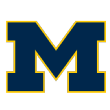
Quarterbacks: Matt Weiss, Michigan
Previous job: Running backs coach, Baltimore Ravens
Despite spending almost his entire coaching career at two places — with the Ravens and at Stanford — Weiss brings a diverse and holistic approach to Michigan’s quarterback room. Between Baltimore and Stanford, he has worked with every major position group other than tight ends, including stints as the primary coach for the Ravens’ linebackers (2014), cornerbacks (2015) and running backs (2019-2020).
Weiss assisted James Urban with Baltimore’s quarterbacks in 2016 and 2017, but he wanted to approach the Michigan job with a deeper understanding of the position.
“In the NFL, you hear about all these guys who go to biomechanic throwing experts, NFL players spending their own money and their own time,” Weiss recently told ESPN. “I always thought that’s something we should provide our own quarterbacks, so I’ve been working with those guys a lot, trying to learn all the biomechanics of throwing. If you look at other sports, like tennis or golf, they all have swing coaches. I feel like the whole idea of ‘that’s not something you coach’ — when a quarterback in the NFL is making $30 million — seems like it’s not right.”
After taking the Michigan job, Weiss reconnected with former Ravens quarterback John Beck, who has become a top quarterback trainer since retiring. Beck works with a California-based group that includes Tom House, the longtime arm specialist for baseball and football players.
Weiss’ goal is to help Michigan’s quarterbacks not only read the field like pros but to also step in when there are mechanical issues.
“One thing you’ll see around the country and even in the NFL is, a guy misses a throw and it’s low or whatever, and the coach says, ‘Hey, get the ball up.’ That’s not really coaching,” Weiss said. “You want to be able to tell him why the ball was low and help him fix it. So it really is not a separate thing. It should be part of coaching your position.”
Weiss is emphasizing efficiency and decision-making to Michigan’s quarterbacks. Under Harbaugh, Michigan quarterbacks have a solid touchdown-to-interception ratio of 108-49. But the Wolverines haven’t been especially dynamic — seemingly a requirement for teams aspiring to win championships and reach the CFP — as they’re tied for 54th in completions of 20 yards or longer (246) since 2015.
“Tom Brady [has] said the quarterback’s job is to not lose the game. That’s what the emphasis is,” Weiss said.
Weiss inherits a group led by Cade McNamara, who threw for five touchdowns with no interceptions in limited work last season. McNamara has drawn significant praise from both Harbaugh and Weiss for his offseason leadership and development. The junior aims to hold off challenges from freshman J.J. McCarthy, ESPN’s fifth-rated quarterback and No. 25 overall prospect in the 2021 class, and transfer Alan Bowman, who started 16 games and eclipsed 5,000 career pass yards at Texas Tech but must absorb a new offense at U-M.
The 38-year-old Weiss thinks he has “great diversity of skill” in his room and likes the way the players have responded so far. After working alongside Ravens head coach John Harbaugh for more than a decade, Weiss is leaning on Jim Harbaugh’s expertise to help develop Michigan’s QBs.
“He has what I lack in terms of experience as a player,” said Weiss, a Connecticut native who was a walk-on punter at Vanderbilt. “I wasn’t a first-round draft pick. I didn’t play 14 years in the NFL. He can lend that perspective and help me with that. He has great perspective about quarterback play, and just wants to win. He’s a problem solver, somebody who wants to figure out a solution to do something or make something better.”

Offensive line: Brad Davis, LSU
Previous job: Offensive line coach, Arkansas
Davis is on quite the SEC tour, as LSU marks his fourth stop in the league since 2017. He spent a season coaching Florida’s offensive line before moving to Missouri for the 2018 and 2019 seasons, and then joining Sam Pittman at Arkansas last fall. A Baton Rouge native, Davis played offensive line for Oklahoma’s national championship team in 2000 and has coached the position at multiple levels and in multiple regions.
LSU needed an offensive line coach after firing James Cregg in June, and the school had to pay big money (three-year contract that averages $830,000 annually) to land Davis on short notice. The Tigers were set to return all five starting linemen before tackle Dare Rosenthal transferred to Kentucky. Davis’ work with Cameron Wire, set to replace Rosenthal, and holdovers such as guard Ed Ingram and center Liam Shanahan will be especially important with a young quarterback, Max Johnson, stepping into the clear starting role after Myles Brennan‘s arm injury.
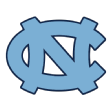
Running backs: Larry Porter, North Carolina
Previous job: Tight ends coach/recruiting coordinator, Auburn
The bad news is that North Carolina must replace a record-setting running back tandem in Michael Carter and Javonte Williams, who combined for 2,385 rush yards and 28 touchdowns on 313 carries last season.
The good news: Porter has familiarity with the program and the position, as he coached UNC’s running backs under Larry Fedora from 2014 to 2016. Porter is the former head coach at Memphis and has worked with running backs at six programs in four power conferences.
North Carolina expects to challenge for the Coastal Division title, especially with quarterback Sam Howell returning, and can’t afford a significant drop-off at running back. After losing Robert Gillespie to Alabama, the Tar Heels needed a veteran to oversee the position and got one in Porter, who will work with Tennessee transfer Ty Chandler and others.

Wide receivers: Chad Bumphis, Utah
Previous job: Wide receivers coach, Austin Peay (briefly WRs at Central Michigan)
Two years after winning the Pac-12 South, Utah is generating buzz again, mostly because of a loaded defense but also renewed optimism on offense. Quarterback Charlie Brewer, the Baylor transfer, impressed during spring practice, as Utah will need its passing game to deliver more this fall.
Bumphis, a graduate assistant with Utah in 2018, enters a key role with a group that endured quite a bit of turnover but retains veteran Britain Covey, the team leader in yards (264) and touchdown receptions (three), and adds Oklahoma transfer Theo Howard, a former starter at UCLA (1,359 yards, 119 catches, nine touchdowns).
Bumphis played at Mississippi State and was on several NFL practice squads before quickly rising in coaching. He spent the past two seasons coaching receivers at Austin Peay and briefly was hired at Central Michigan before taking the Utah job.
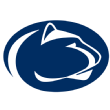
Tight ends: Ty Howle, Penn State
Previous job: Offensive analyst, Penn State
Coach James Franklin went internal to replace Tyler Bowen, one of the team’s top assistants in recent years, who joined Urban Meyer with the Jacksonville Jaguars. Howle’s promotion to oversee the tight ends, a premium spot in Franklin’s program, represents quite the jump for the former Nittany Lions offensive lineman.
Howle spent four years at Western Illinois before joining PSU as an analyst in 2020. He also worked under former Big Ten offensive coordinator Matt Canada (now with the Pittsburgh Steelers) at NC State. But this is by far his biggest role.
Penn State lost standout tight end Pat Freiermuth but likes how Brenton Strange and Theo Johnson project for 2021, and 6-foot-6 redshirt freshman Tyler Warren provides another big target for quarterback Sean Clifford. Franklin prioritized continuity with the move, especially with the arrival of the team’s third offensive coordinator (Mike Yurcich) in as many years.

Defensive line: Bo Davis, Texas
Previous job: Defensive line coach, Detroit Lions
Davis might be the most fascinating coach on this list, and certainly is an important addition to Steve Sarkisian’s staff at Texas. SEC fans remember Davis from two stints at Alabama, the latter of which he coached A’Shawn Robinson, Jonathan Allen and others before resigning in 2016 and receiving a two-year show-cause penalty for NCAA violations. He coached during the show-cause at UTSA in 2017 before joining the Lions.
Davis has developed star linemen everywhere he has been — he had All-Americans Terrence Cody and Marcell Dareus during his first go-round at Alabama — and returns to Texas after working as the Longhorns’ defensive tackles coach under Mack Brown from 2011 to 2013.
He takes over a group that loses its most consistent edge playmaker in end Joseph Ossai (five sacks, 16 tackles for loss in 2020), as well as a solid interior presence in Ta’Quon Graham. Davis’ expertise will be essential to generating overall growth from the unit under new coordinator Pete Kwiatkowski.
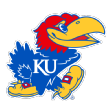
Linebackers: Chris Simpson, Kansas
Previous job: Linebackers coach/co-defensive coordinator, Buffalo
Kansas will be no quick fix, and the new coaching staff under Lance Leipold, hired after spring practice concluded, needs time to right the ship in Lawrence. Simpson is among the group of assistants Leipold brought from Buffalo, having developed standouts such as All-MAC selections Khalil Hodge, James Patterson and Kadofi Wright. His strong work earned him a co-coordinator title in 2020.
He takes over a group with significant questions, although sophomore Taiwan Berryhill, juniors Gavin Potter and Nick Channel, senior Nate Betts and others provide a decent foundation. Like others on Leipold’s staff, Simpson came up through the lower ranks, and Kansas represents his first opportunity with a Power 5 program. But if he can start replicating his player development from Buffalo with the Jayhawks, the defense should stabilize sooner than later at KU.
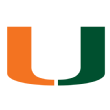
Outside linebackers: Ishmael Aristide, Miami
Previous job: Defensive analyst, Texas A&M
Hurricanes head coach Manny Diaz made several changes on defense after the 2020 season, among them reclaiming the playcalling duties himself. Aristide might not be as well known as defensive backs coach Travaris Robinson, the former South Carolina coordinator, or Jess Simpson, who begins his second stint as Miami’s defensive line coach.
But the 30-year-old Aristide is the most interesting addition to the staff. He’s a fast riser who played on both sides of the ball, worked outside football as a consultant for Deloitte and then came up in coaching at Auburn, Ole Miss and Texas A&M, working under gifted coordinators such as Mike Elko.
He takes over an outside linebacker/striker group that must improve against the run after being gashed by North Carolina and others in 2020. Among those Aristide will coach is promising sophomore striker Gilbert Frierson, who recorded nine tackles for loss and 53 total tackles last season.
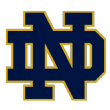
Safeties: Chris O’Leary, Notre Dame
Previous job: Defensive graduate assistant, Notre Dame
Up-and-comers are a theme of this year’s list, and O’Leary qualifies after moving from a graduate assistant role to overseeing the safeties under new coordinator Marcus Freeman. Head coach Brian Kelly could have gone with much more experienced options but picked O’Leary, a favorite of former Notre Dame defensive coordinator Clark Lea who could have followed Lea to Vanderbilt.
Instead, O’Leary gets his big break before age 30. He takes over a group featuring a superstar in Kyle Hamilton but needing definitive answers alongside and behind the standout junior.
O’Leary is from Indiana but came up in coaching at Georgia State and Florida Tech before arriving at Notre Dame in 2018. Kelly has been increasingly more open to giving young coaches chances — offensive coordinator Tommy Rees, Freeman and Lea are recent examples. If O’Leary can help keep Notre Dame’s defense on a strong trajectory, he could soon be in line for coordinator consideration around the country.
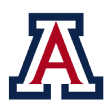
Cornerbacks: DeWayne Walker, Arizona
Previous job: Defensive backs coach, Cleveland Browns (2019)
New Arizona head coach Jedd Fisch put together an impressive first staff, featuring several veterans on defense under coordinator Don Brown. Fisch wisely retained Chuck Cecil, the former Arizona star safety who had been on Kevin Sumlin’s staff and maintains a strong connection to the school and the players.
He also brought in Walker, the former New Mexico State coach and former UCLA defensive coordinator, to work with Cecil in the secondary and specifically with the cornerbacks. The 60-year-old Walker has coached defensive backs for five NFL teams and at both Cal and USC. He spent three seasons as UCLA’s coordinator under Karl Dorrell and Rick Neuheisel.
After not coaching in 2020, he takes over a group that could be among Arizona’s strengths with sophomore Christian Roland-Wallace and Notre Dame transfer Isaiah Rutherford. Brown’s pressuring scheme puts extra pressure on cornerbacks, which emphasizes Walker’s role for this fall and beyond.

Special teams: Jeff Banks, Texas
Previous job: Special teams coordinator/tight ends coach, Alabama
Special teams problems surfaced throughout coach Tom Herman’s tenure, even prompting criticism last year from a former star punter. Of all the staff hires Sarkisian made, Banks might end up being the most significant.
Texas made Banks college football’s first $1 million special teams coordinator in prying him away from Nick Saban and Alabama. The Crimson Tide kicking game stabilized under Banks, especially last season, as Alabama did not miss a field goal, allowed no blocked kicks or punts, and ranked ninth nationally in punt returns. Banks also knows the state of Texas well from his time as Texas A&M’s special teams coordinator from 2013 to 2017.
He gives Sarkisian down-the-road value as a recruiter, but he also can immediately impact a unit that needs a significant boost. Banks inherits veteran specialists in kicker Cameron Dicker and punter Ryan Bujcevski, and a potential star returner in D’Shawn Jamison. Texas needs the kicking game to become a strength, and Banks has the credentials to deliver.
